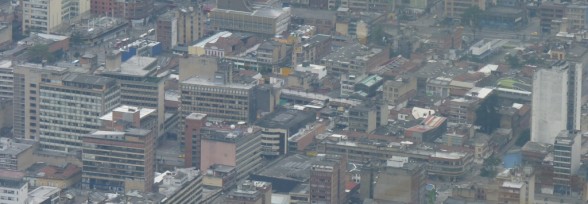This blog post originally appeared on the FITT (Forum for International Trade Training) Canada blog, Trade Ready – International Trade Matters.
After 13 years in the UK, coming back to live and work in my native Uruguay has meant re-adjusting to business culture here. I own my own international trade business but I also work with many UK businesses across the whole of Latin America. And this means meetings. Lots of meetings. Now, remember that Latin America is vast – it comprises 600 million people across two hemispheres, two main languages and 19 countries. So there’s a lot of variety. However, from my own experience but also from talking to many businesspeople within Latin America and with those from outside that have done business in the continent, here are my 5 truths of business meetings in Latin America…
1. Maybe tomorrow?
It is perfectly normal in Latin America to schedule a meeting 2 or 3 days in advance, if not less. Some companies and individuals might be more organised, but in general meetings scheduled a month or more in advance are very rare at all levels (unlike the UK). Meetings are changed and cancelled, just like anywhere else in the world, but in general, you will get some notice. I have been positively surprised since coming back to Latin America at the level of professionalism of those working in international trade – and punctuality has been a very nice surprise – although there still are some (exasperating) exceptions.
2. Confirm, confirm, confirm
The problem with my first point is that you will probably need to make travel arrangements and have a diary of visits more or less fixed in order to maximise the benefits of your trip. That’s ok.
Emphasise just how important the meeting is to you and that you need to make sure that the person is available on time to see you. This is better done by someone local, who can probably suss out the likeliness of the meeting going ahead just by the tone of voice of the secretary/other person, and who can probably be firmer and stress the importance of the meeting. And phone is best.
3. Get the map out
When you schedule a meeting, make sure you know who you are meeting, where and when. Sounds basic? I’ve seen many a mistake due to not checking basic details. Try to get the other part to send you a map and directions or to explain the best way of getting there, rather than spending hours on Google maps and a transport map/timetable online that is probably inaccurate anyway. Remember that distances in large cities can be vast – it can easily take you an hour or two (or a lot more) to cross a city like Mexico DF, Sao Paulo or Buenos Aires.
4. Agenda
What a topic! After 13 years in the UK, I’ve learnt to love meeting agendas. But they rarely work here in Latin America. Sitting down at a meeting and taking out your agenda and going through what you want to cover might come across as rushed and rude. Take time to build relationships. Your business in Latin America will depend more on those relationships than on any agenda.
Again, it depends on who you are meeting, but allow some flexibility and allow for personal conversation. You will be asked about your family, football team, etc, at some point – I personally tend to be asked my age, marital status and number of children within 5 minutes! Read my blog on women and business meetings.
5. What next?
“Closing a meeting” takes a long time in Latin America (involving hugs, pats on the back, kisses, laughter, jokes…) and, again, rushing to sum up all actions and resolutions might not be the right thing to do. If you leave too early, believe me, you’ll miss out. Wait and see what everyone else does… I tend to use the excuse of “not being from there” or “having been in the UK too long” to clarify these points – humour works! And don’t assume that the actions will be performed and everything said will be acted upon. Following up is key and perseverance is critical. I personally try to put some clear timescales because “mañana” (tomorrow), “ahora” (now) and “pronto” (soon) can mean very different things for different people in different countries.
If you’re planning a meeting, remember that Latin Americans are very sociable and face-to-face meetings are important to us – do value them beyond any agenda. The first meetings are likely to be more about learning about each other than about closing any deals. But you will move on from there and, as the relationships become stronger, you might get more quickly down-to-business. Mañana, maybe…
Enjoyed this article? Don’t miss out on new posts, sign up here.


